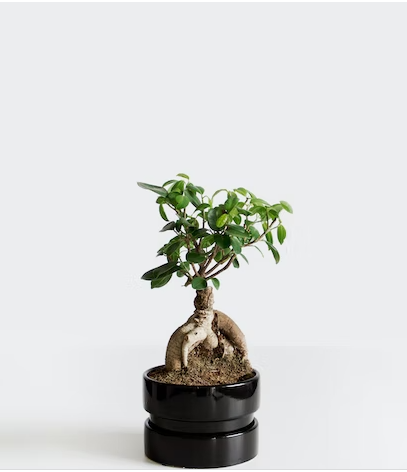Image: https://unsplash.com/photos/ALtNa-uKy3M
Are you a fan of bonsai trees? Do you have a ficus bonsai tree in your collection? If yes, then you must know how important it is to take proper care of your bonsai tree. Ficus bonsai trees are beautiful, delicate, and require a lot of attention.
But don’t worry, taking care of your ficus bonsai tree is not rocket science, and with a little effort and patience, you can keep your tree healthy and happy. In this article, we will share some tips and tricks for ficus bonsai tree care that will help you keep your tree in top shape.
Choosing the Right Soil for Your Ficus Bonsai Tree
The soil is the foundation of your bonsai tree’s health, so it is essential to choose the right type of soil for your ficus bonsai tree. Ficus bonsai trees prefer well-drained soil that is slightly acidic. You can use a mixture of Akadama, pumice, and lava rock, or you can make your soil mix by combining sand, peat moss, and perlite. It is important to avoid using regular potting soil, as it can retain too much water and suffocate the roots of your bonsai tree.
Watering Your Ficus Bonsai Tree
Watering your ficus bonsai tree is one of the most crucial aspects of ficus bonsai tree care. Ficus bonsai trees need to be watered regularly, but you should not overwater them. Overwatering can lead to root rot, which can be fatal for your bonsai tree. On the other hand, under-watering can cause your tree to dry out and die.
So, how often should you water your ficus bonsai tree? Well, it depends on various factors such as the size of your pot, the type of soil you are using, the humidity in your area, and the time of the year. Generally, you should water your ficus bonsai tree when the topsoil feels slightly dry to the touch.
Fertilizing Your Ficus Bonsai Tree
Fertilizing is another crucial aspect of ficus bonsai tree care. Ficus bonsai trees require regular fertilization to grow healthy and strong. You can use organic or inorganic fertilizer, but it is essential to use the right type of fertilizer for your bonsai tree.
Ficus bonsai trees prefer a balanced fertilizer that contains equal amounts of nitrogen, phosphorus, and potassium. You should fertilize your ficus bonsai tree once a month during the growing season and stop fertilizing during the dormant season.
Pruning Your Ficus Bonsai Tree
Pruning is an essential part of ficus bonsai tree care. Regular pruning helps your tree to maintain its shape and size, and it also promotes healthy growth. You should prune your ficus bonsai tree during the growing season, and you should only prune the branches that are too long or too thick. It is important to use sharp, clean pruning shears to avoid damaging your tree.
Protecting Your Ficus Bonsai Tree from Pests and Diseases
Pests and diseases can be a significant threat to your ficus bonsai tree’s health. Mealybugs, spider mites, and scale insects are some common pests that can infest your bonsai tree. To protect your tree from pests, you should inspect it regularly and remove any infected leaves or branches.
You can also use insecticides to control pest infestations. Diseases such as root rot and leaf spot can also be fatal for your ficus bonsai tree. To prevent diseases, you should ensure that your tree is not overwatered and that it receives adequate sunlight and proper ventilation. You can also use a fungicide to prevent fungal infections.
Repotting Your Ficus Bonsai Tree
Repotting your ficus bonsai tree is another essential aspect of ficus bonsai tree care. Repotting helps your tree to get the necessary nutrients and space to grow. You should repot your ficus bonsai tree once every two to three years, depending on its growth rate.
It is best to repot your tree during the early spring when it starts to grow new shoots. When repotting, it is important to remove any dead roots, trim the healthy roots, and use fresh soil mix.
Final Thoughts
Ficus bonsai tree care requires a lot of patience, attention, and effort, but it is worth it when you see your tree grow healthy and strong. By following the tips and tricks mentioned above, you can ensure that your ficus bonsai tree stays healthy and happy. Remember, each bonsai tree is unique, and it may have different requirements based on its age, size, and species.
Therefore, it is important to observe your tree closely and adjust your care routine accordingly. With proper care, your ficus bonsai tree can live for decades and become a beautiful centerpiece in your home or garden.


